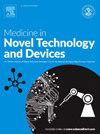Artificial intelligence in pharmaceutical sciences: A comprehensive review
Q3 Medicine
引用次数: 0
Abstract
The integration of artificial intelligence (AI) and machine learning (ML) into pharmaceutical sciences has catalyzed transformative advancements across drug discovery, clinical development, manufacturing, and post-market surveillance. This review comprehensively examines AI's role in modern pharmacotherapy, beginning with its historical evolution in life sciences and progressing to cutting-edge applications such as AlphaFold-driven protein modeling, natural language processing (NLP) for biomedical literature mining, and AI-augmented pharmacovigilance. Methodologically, we synthesize interdisciplinary insights from peer-reviewed literature (2013–2023), highlighting innovations in cheminformatics (e.g., QSAR, RDKit), predictive toxicology, and personalized medicine. Case studies illustrate AI's capacity to compress drug development timelines, as seen in COVID-19 repurposing efforts and de novo kinase inhibitor design. However, challenges persist, including algorithmic bias, regulatory ambiguities, and the “black-box” nature of deep learning models. By critically evaluating successes and limitations, this review underscores AI's potential to redefine pharmaceutical innovation while advocating for robust frameworks to ensure ethical, transparent, and clinically translatable AI deployment.
人工智能在制药科学中的应用综述
人工智能(AI)和机器学习(ML)与制药科学的整合促进了药物发现、临床开发、制造和上市后监督的变革性进步。本文全面探讨了人工智能在现代药物治疗中的作用,从其在生命科学中的历史演变开始,发展到前沿应用,如alphafold驱动的蛋白质建模、用于生物医学文献挖掘的自然语言处理(NLP)和人工智能增强的药物警戒。在方法上,我们综合了来自同行评审文献(2013-2023)的跨学科见解,突出了化学信息学(如QSAR, RDKit),预测毒理学和个性化医学方面的创新。案例研究表明,人工智能能够缩短药物开发时间表,如COVID-19重新定位工作和从头开始的激酶抑制剂设计。然而,挑战依然存在,包括算法偏见、监管模糊以及深度学习模型的“黑箱”性质。通过批判性地评估成功和局限性,本综述强调了人工智能重新定义制药创新的潜力,同时倡导建立健全的框架,以确保道德、透明和临床可翻译的人工智能部署。
本文章由计算机程序翻译,如有差异,请以英文原文为准。
求助全文
约1分钟内获得全文
求助全文
来源期刊

Medicine in Novel Technology and Devices
Medicine-Medicine (miscellaneous)
CiteScore
3.00
自引率
0.00%
发文量
74
审稿时长
64 days
 求助内容:
求助内容: 应助结果提醒方式:
应助结果提醒方式:


